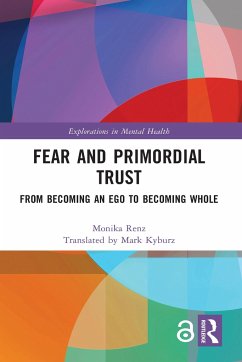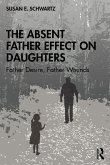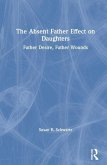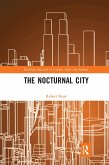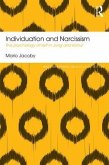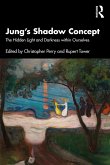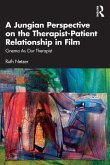Fear and Primordial Trust explores fear as an existential phenomenon and how it can be overcome. Illustrated by clinical examples from the author's practice as a psychotherapist and spiritual caregiver working with the severely ill and dying, the book outline theoretical insights into how primordial trust and archaic fear unconsciously shape our personality and behaviour.
This book discusses in detail how in our everyday world, we lack primordial trust. Nevertheless, all of us have internalized it: as experiences of another non-dual world, of being unconditionally accepted, then sheltered and nurtured. The book outlines how from a spiritual viewpoint, we come from the non-dual world and experience a transition by becoming an ego, thereby experiencing archaic fear. This book explains fear in terms of two challenges encountered in this transition: firstly, leaving the non-world world when everything changes and we feel forlorn. Secondly, on awakening in the ego when we feel dependent and overwhelmed by otherness. The book also helps readers to understand trust as the emotional and spiritual foundation of the human soul, as well as how fear shapes us and how it can be outgrown.
The book makes the case that understanding fear and primordial trust improves care and helps us to better understand dying. It will be of interest to academics, scholars and students in the fields of psychiatry, counselling, psychotherapy and palliative care and to all those interested in understanding fear, trust and the healing potential of spiritual experiences.
Chapters 1 and 3 of this book are freely available as a downloadable Open Access PDF under a Creative Commons Attribution 4.0 license available at https://www.taylorfrancis.com/books/mono/10.4324/9781003176572
This book discusses in detail how in our everyday world, we lack primordial trust. Nevertheless, all of us have internalized it: as experiences of another non-dual world, of being unconditionally accepted, then sheltered and nurtured. The book outlines how from a spiritual viewpoint, we come from the non-dual world and experience a transition by becoming an ego, thereby experiencing archaic fear. This book explains fear in terms of two challenges encountered in this transition: firstly, leaving the non-world world when everything changes and we feel forlorn. Secondly, on awakening in the ego when we feel dependent and overwhelmed by otherness. The book also helps readers to understand trust as the emotional and spiritual foundation of the human soul, as well as how fear shapes us and how it can be outgrown.
The book makes the case that understanding fear and primordial trust improves care and helps us to better understand dying. It will be of interest to academics, scholars and students in the fields of psychiatry, counselling, psychotherapy and palliative care and to all those interested in understanding fear, trust and the healing potential of spiritual experiences.
Chapters 1 and 3 of this book are freely available as a downloadable Open Access PDF under a Creative Commons Attribution 4.0 license available at https://www.taylorfrancis.com/books/mono/10.4324/9781003176572
"Monika Renz's work is at the forefront of those thinkers who are outlining a new concept of humankind, a concept that is based on movement and on a connection with the cosmos while accounting for what makes us special as human beings. Her inspiration and certainty are rooted in a field that might be said to constitute "pure," unmistakable movement: music. Music can be grasped, yet not touched. Music, moreover, is perhaps the most recognized reality, which, although it is related to material structures, is not itself material. Experiences of music and music therapy form the basis for Dr Renz's search for a new concept of the human being, a concept of our becoming, suffering, and healing. This basis has rested on experiences of music since antiquity. It is also highly relevant for our eventful times, which are characterized by upheaval and by a departure to both a new unity of the world and the associated dimension of our responsibility as humans and that of society."
Prof. Dr. med. Heinz Stefan Herzka, Zurich
"The only thing we have to fear is fear itself," Franklin D. Roosevelt observed in his inaugural speech as the 32nd President of the United States of America in 1933 in the midst of the Great Depression. What Roosevelt articulated as a political issue is also a fateful theme of being in the world, as Monika Renz impressively explains in her latest book Fear and Primordial Trust. Her approach, which is grounded in developmental psychology and in spirituality, assumes that a state exists before and beyond fear. She understands this condition as being connected with the One, the Whole - in religious terms, with God. And yet, she is not concerned with dogmatic reflection, but with experience, which each of us can make. Starting from being contained in the Whole, human development leads to limitations and separateness of our every-day consiousness, in which we live because we are an "I." In addition to primordial trust, in which we originate, we experience primordial fear already at an early age in becoming an ego. We take this fear with us, along with its problematic consequences, as we move through life, bearing our load. Yet development leads, if permitted, to maturation processes beyond life-determining fear, in perfect agreement with Richard Rohr's words: "It is not necessary to be perfect but to be connected." By this, he means being connected to our roots in the Whole, in God. Dr Renz illustrates her reflections with examples and experiences from day-to-day hospital life. This book is a must-read for anyone seeking to better understand the phenomenon of fear."
Prof. Dr. theol. Paul M. Zulehner, Vienna
'A hugely significant contribution to our understanding of psychospiritual development in terms of the dynamics of fear and trust and the process of maturation through suffering and ultimately the dying process. Just as the ego unfolds and differentiates itself from the nondual ground or whole, so we have an inherent longing to reunite with and refold into this same Divine Unity - an illuminating read at many levels.'
David Lorimer, Programme Director, Editor, Paradigm Explorer
Prof. Dr. med. Heinz Stefan Herzka, Zurich
"The only thing we have to fear is fear itself," Franklin D. Roosevelt observed in his inaugural speech as the 32nd President of the United States of America in 1933 in the midst of the Great Depression. What Roosevelt articulated as a political issue is also a fateful theme of being in the world, as Monika Renz impressively explains in her latest book Fear and Primordial Trust. Her approach, which is grounded in developmental psychology and in spirituality, assumes that a state exists before and beyond fear. She understands this condition as being connected with the One, the Whole - in religious terms, with God. And yet, she is not concerned with dogmatic reflection, but with experience, which each of us can make. Starting from being contained in the Whole, human development leads to limitations and separateness of our every-day consiousness, in which we live because we are an "I." In addition to primordial trust, in which we originate, we experience primordial fear already at an early age in becoming an ego. We take this fear with us, along with its problematic consequences, as we move through life, bearing our load. Yet development leads, if permitted, to maturation processes beyond life-determining fear, in perfect agreement with Richard Rohr's words: "It is not necessary to be perfect but to be connected." By this, he means being connected to our roots in the Whole, in God. Dr Renz illustrates her reflections with examples and experiences from day-to-day hospital life. This book is a must-read for anyone seeking to better understand the phenomenon of fear."
Prof. Dr. theol. Paul M. Zulehner, Vienna
'A hugely significant contribution to our understanding of psychospiritual development in terms of the dynamics of fear and trust and the process of maturation through suffering and ultimately the dying process. Just as the ego unfolds and differentiates itself from the nondual ground or whole, so we have an inherent longing to reunite with and refold into this same Divine Unity - an illuminating read at many levels.'
David Lorimer, Programme Director, Editor, Paradigm Explorer

